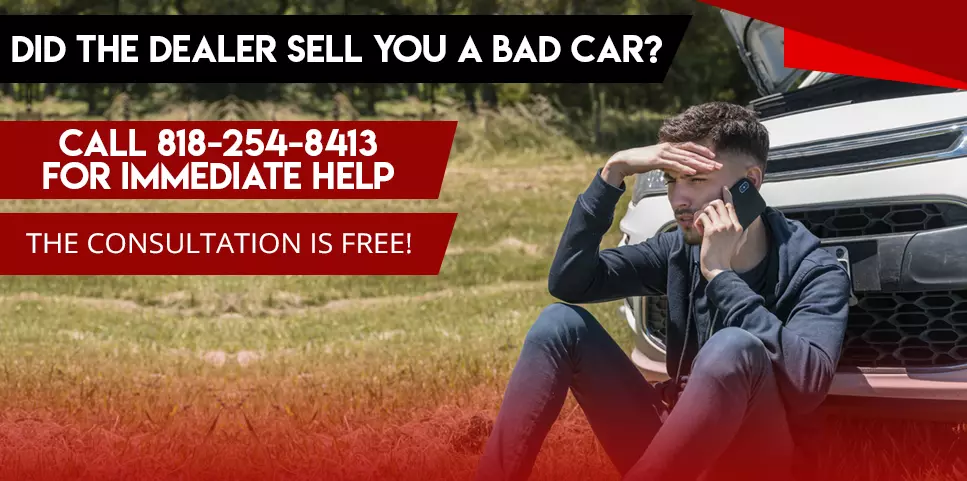Can You Return a Used Car If It Has Problems
The ability to return a used car with problems varies by region and the dealer’s policies. Some jurisdictions have lemon laws that may provide protections to consumers.
Buying a used car can be fraught with uncertainty, especially when unexpected issues surface post-purchase. Many consumers wonder about their rights and the possibility of returning a vehicle that reveals defects after leaving the dealership. It’s crucial to understand that return policies are not universal and can depend on local regulations and the terms of your sales contract.
Certain areas have lemon laws that provide a safety net for buyers, but these typically apply to new vehicles or used cars still under factory warranty. Your course of action largely hinges on where you live, the condition of the car, and the dealer’s specified return protocol. To avoid potential pitfalls, being informed about your legal protections and thoroughly reviewing the purchase agreement before signing is of paramount importance.

Credit: www.reddit.com
The Legal Landscape Of Used Car Returns
The thrill of driving off the lot in a newly purchased used car often comes with a hidden fear: what if the car has problems? Understanding your rights can turn that fear into confidence. Here we explore the legal aspects of returning a problematic used vehicle and what protections are in place for buyers.
Lemon Laws And Used Vehicles
Lemon laws protect car buyers from faulty vehicles. But, these laws are not the same everywhere. Each state has different protections under lemon laws for used cars. Some states include used cars in their lemon laws. Others do not. Some key points include:
- The car must fail to meet quality and performance standards.
- The problems often must occur within a certain time after purchase.
- You may need to give the dealer a chance to fix the issues.
Be sure to check your state’s lemon law to see if your used car qualifies for protection.
Dealer Return Policies
Dealers may set their own return policies for used cars. These are not the same everywhere. Return policies can range from a few days to a month. Here are points to consider:
| Time Frame | Restocking Fee | Mileage Limit |
|---|---|---|
| 3-30 days | Yes / No | Varies |
Always ask for the dealer’s return policy in writing. Make sure you understand the conditions before signing the contract.
Consumer Rights And Protections
Consumer Rights and Protections play a critical role when dealing with used cars that have issues. The moment you drive off the dealership lot with your newly purchased used vehicle, the last thing you want is to discover major problems. Thankfully, there are laws in place designed to shield buyers from such unfortunate scenarios. Understanding these legal assurances can provide peace of mind and a safety net for consumers.
Implied Warranties Under State Laws
Most states have implied warranties that safeguard buyers. These are unspoken, unwritten promises from sellers that the vehicle will function as intended. Implied warranties come in two main types: the warranty of merchantability and the warranty of fitness.
- Warranty of Merchantability means that the car should work as expected.
- Warranty of Fitness applies if you buy a car for a specific purpose.
Implied warranties do not cover everything but can protect against major defects.
Express Warranties From Dealerships
Express warranties are explicitly stated by the seller. They offer additional assurances beyond what’s provided by state laws. These warranties can be written or verbal, but written ones carry more weight legally.
Dealerships typically offer a limited warranty on used vehicles. These warranties usually cover certain parts for a set period. For instance, they might offer 30 days or 1,000 miles coverage on the engine or transmission. Read the terms closely before purchasing to understand your coverage.
| Warranty Type | Coverage | Duration |
|---|---|---|
| Basic | Engine, Transmission | 30 Days / 1,000 Miles |
| Powertrain | Engine, Driveshaft, Transmission | 60 Days / 2,500 Miles |
These protections mean you may have recourse if your used car has issues after purchase. Check your paperwork and state laws to understand your rights.
Assessing Your Situation
Realizing that your newly purchased used car is facing issues can be a tough spot. It’s essential to understand your options and the next steps you need to take. Starting with a detailed assessment of the situation is key.
Evaluating The Severity Of Car Problems
Different car problems carry varied levels of concern. Some troubles might be simple fixes; others, not so much:
- Minor glitches such as a broken radio antenna may not justify a return.
- Moderate issues like malfunctioning AC could demand repair.
- Major problems, like engine failure, might be return-worthy.
Identify where your car’s troubles fall:
- Is the car safe to drive?
- Will repairs cost more than the car’s value?
- Did the seller disclose the existing problems?
Documenting Issues For Proof Of Claim
Detailed records support your claim if a return is needed. Gather evidence as soon as problems emerge:
- Take photos or videos of the issue.
- Keep a log of symptoms and occurrences.
- Obtain mechanic reports and repair quotes.
| Documentation | Type | Details |
|---|---|---|
| Visual Evidence | Photos/Videos | Shows problem visually |
| Occurrence Log | Written Record | Dates and descriptions |
| Professional Opinion | Mechanic Report | Technical assessment |
Organized documentation strengthens your position. Make sure all receipts, reports, and communications are secure. These will be critical during discussions of a return or repair with the seller.
Steps To Initiate A Return
Discovering problems with a used car after purchase is frustrating. The crucial steps to return the car begin with clear communication and possible legal guidance. Keep reading to learn about these steps in detail.
Communicating With The Seller
Start by contacting the seller as soon as you notice any issues. Keep all communications polite and factual. Document everything, including the problem, and the date you found it. Here’s how to approach this step:
- Reach out directly to the seller or dealership.
- Describe the issue clearly and provide evidence, like photos or videos.
- Keep a log of all communications and responses.
- Ask about their return or repair policy.
Leveraging Legal Advice
Legal guidance can be crucial if the seller is uncooperative. Your rights vary based on location and the sales agreement. Seek legal advice to understand your options:
- Consult with a consumer rights attorney.
- Review the sales contract for any implied warranties or return policies.
- Determine if your state has a Lemon Law that applies.
- Prepare for potential legal action if necessary.
Gathering all relevant information and organizing it for your attorney will give you a strong starting point.
Prevention And Precautionary Measures
Buying a used car can be a smart move. But it can also lead to trouble if the car has hidden problems. To avoid this, take steps before you buy. Smart moves can save you from stress and extra costs later.
Investing In A Pre-purchase Inspection
Never skip a pre-purchase inspection. It’s key to finding issues in a used car. A mechanic checks the car before you buy. They look for engine problems, rust, and more.
- Engine performance: The heart of the car needs to be strong.
- Tire condition: Worn tires mean you’ll need to replace them soon.
- Brake efficiency: Safety comes first, so brakes must work well.
This step shows hidden problems you can’t see. Spend a little now to save a lot later.
Understanding The Fine Print
Warranty terms are crucial. Read them carefully. Ask questions. Look for what’s covered and what’s not. Find out about the return policy. Some places let you return a car within a few days if you find problems.
| Policy Component | What to Check |
|---|---|
| Coverage Length | How long is the warranty valid? |
| Coverage Items | Which parts and problems are included? |
| Return Policy | Can you return the car? If yes, how soon? |
Checking these details can prevent surprises. Be prepared before you sign. Know your rights and protections.

Credit: consumeractionlawgroup.com
Alternatives To Returns
Discovering that your recently purchased used car has issues can be frustrating. You may wonder if you’re stuck with a lemon. But there are alternatives to returning the vehicle. Let’s explore some viable options to mitigate the situation without resorting to a direct return. It is crucial to know your rights and what steps you can take to address the issues at hand.
Negotiating Repairs With The Dealer
Talk to your dealer as soon as you notice any problems. Many dealers prefer to maintain a good reputation and might offer to repair the car. Remember, negotiation is key. Prepare a list of issues and discuss potential fixes with the dealer. Sometimes, dealers have service centers that can handle repairs. This can often be the most direct and cost-effective solution.
- Understand the warranty terms if available.
- Keep all service records and agreements.
- Be clear about the timeline for repairs.
Exploring Trade-in Options
When repairs are not viable, consider a trade-in. Some dealers may allow you to trade the problematic car for a different one. Assess the car’s current value and research what you can realistically get. Approach the dealer with your findings and express your interest in a trade-in.
Remember to:
- Check the vehicle’s value on trusted automotive websites.
- Choose a reliable replacement car.
- Read any new contract thoroughly.
Frequently Asked Questions For Can You Return A Used Car If It Has Problems
Can I Return A Used Car With Issues After Purchase?
Most used car returns depend on the dealer’s return policy or state laws. Typically, you have a short window, often a few days, to return it if problems arise. However, private sales usually don’t offer this flexibility, sold as-is.
What Are Lemon Laws For Used Cars?
Lemon laws protect consumers, allowing them to return defective vehicles. These rules vary by state. For used cars, lemon laws might apply if the vehicle is under warranty or within a set timeframe from purchase.
Is There A Cooling-off Period For Used Cars?
No federal law mandates a cooling-off period for used cars. Some states have specific laws, but often the purchase is final unless the dealership agreement specifies a return option.
How To Handle A Used Car With Undisclosed Defects?
If a used car has undisclosed defects, first, review your sales agreement for warranty or return policy details. If necessary, contact the dealer to negotiate a resolution. When problems persist, consult with consumer protection agencies or legal counsel.
Conclusion
Navigating the return process of a used car with issues can be complex. Remember, your rights as a consumer protect you and demand transparency from sellers. Always review contracts and seek legal advice if necessary. With the right approach, resolving problems with a problematic vehicle becomes manageable.
Drive smart, stay informed!



